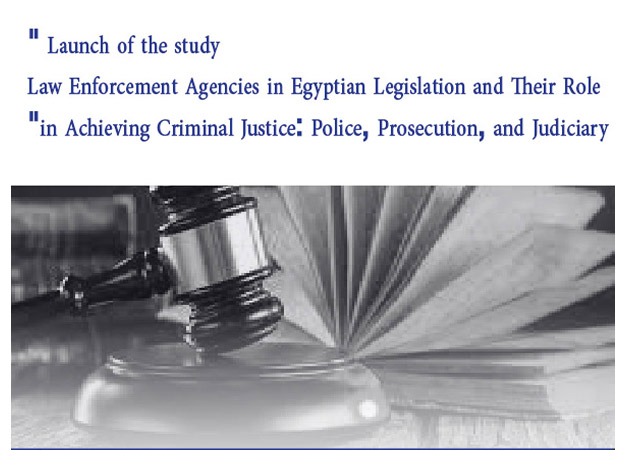The Egyptian Commission for Rights and Freedoms continues its publications as part of its campaign to spread a series of studies on criminal justice and legislative reform in Egypt.
The Commission publishes a study titled “Law Enforcement Agencies in Egyptian Legislation and Their Role in Achieving Criminal Justice: Police, Prosecution, and Judiciary.”
The study discusses the role of law enforcement agencies through the analysis of several laws, such as the Police Authority Law No. 109 of 1971, the Anti-Terrorism Law No. 94 of 2015, and the Law Organizing Reform and Rehabilitation Centers No. 396 of 1956.
It also discusses the role and powers of the Public Prosecution, particularly regarding inspections of prisons and detention places, as well as the wide-ranging powers of the prosecution in combining investigative and accusatory roles.
The campaign by the Commission to issue legal studies comes at a time when the need for significant legislative reform has reached its peak, especially with the rise of human rights violations, including torture and other forms of inhuman and degrading treatment, enforced disappearances, medical neglect of prisoners, deaths in detention, unfair trials, prolonged pretrial detention, and the general repression of opposition.
Therefore, it is essential to analyze the roots of these violations and address the necessary legislative reforms comprehensively and in detail, with the aim of enhancing civil society participation in Egypt to push for the necessary legislative and institutional reforms to ensure the protection of all citizens from torture and other forms of inhuman, degrading, or cruel treatment or punishment, as part of a broader plan to reform the entire criminal justice system.
The Egyptian Commission for Rights and Freedoms has also set several objectives through its work on the legislative reform file. The main goal is to create a program to reform the criminal justice system by proposing the necessary legal amendments and changes to the institutional framework governing both the police and the judiciary, with the aim of preventing torture and other grave human rights violations.

